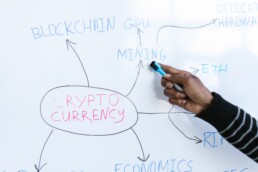The downside of blockchain
By now we understand, the blockchain is a public ledger. So it's a ledger that everybody can look at, if they know how.
So it's a list of who owns what. Even if pseudonymous as Bitcoin, with a KYC within the network, I can know that my neighbor has a significant amount of money or not.
With normal bank accounts this does not happen, we do not know how much our precendent neighbor owns unless he tells us himself or someone lets us know. Not to mention possible hacks of the bank's databases, which should not happen.
Let us start with a basic principle, it is not smart to tell to everybody about our possessions. Whether you are talking about cryptocurrencies or fiat currency accounts. My preference is to always be on a low profile, without flaunting one's possibilities even if they are limited. The personal safety factor should always be understood and considered. There are times and places to flaunt one's favorite Rolex.
The blockchain, unfortunately, as it was conceived and created, has a big privacy problem, which in the coming years will absolutely have to be addressed and solved.
What is a blockchain? Learn more here.
The Scam List - A guide to avoid scam - Part 5
- Links and emails
Our mailbox can be a source of trouble if we use it wrong and without thinking too much about it.
It's true that we receive a lot of emails but we must always be careful.
It often happens to be prey to waves of phishing mails.
Now you should always check what you receive.
If you get an email that you don't recognize with some strange link in it, throw it away.
I have personally received clone mails of the electricity bill, which invited me to pay small amounts on different bank accounts and with different methods from the previous bills.
I have also received clone mails from banks, not only the one where I have the account, but also others with which I have never had to do, inviting me to login directly from the mail or sending me to an external link to login.
And then steal my credentials to access my account.
Same exact scam procedure to steal my credentials, but with the excuse of a contest in which I could win a dream vacation and an iphone.
Always check what you are doing with these emails and never ever enter your credentials or click on the links inside.
In addition to sending you on clone sites can lead you to download malware that infect your PC and steal your sensitive data.
Protect yourself at all times.
- Guru
You often see them in youtube ads or on instagram.
They have the secret, the magic formula and they want to reveal it to you.
They read 200 books a week, live in huge villas with 50 bedrooms and have garages full of Ferraris, Lamborghinis and Bentleys.
They are the self-made millionaires who want your personal growth and who want to see you rich.
OK
All beautiful, but who the heck is this guy?
And if he has all this money why does he want to sell me a course or a book?
Now, let's get this straight, I have nothing against wealthy people who have large assets and who make their knowledge available to everyone, but these people in most cases are selling you half scams. It is hard to tell who is really good from the one who wants to scam you.
These kinds of scams appeal to those who want to make money quickly, effortlessly, at most by reading some booklet or with a magic formula.
The world of social media has made the presence of these kinds of investment gurus soar, who have all the answers and know it all.
In most cases they aim to sell a course, a book or an investment method, all seasoned with a social image of success wrapped in luxury and opulence.
The story is very similar, it starts from a childhood without prospects up to an adolescence where non-stop work and study reward up to have a stratospheric bank account, with companies around the world that bill as if there was no tomorrow and contacts with all the big celebrities in the world.
Now, we may or may not believe these gurus, maybe they are right, maybe they are really good and they will make you a lot of money.
But those of us who want to avoid risk have a few research methods.
The first thing to do is not to fall in love with what they sell us but to analyze what they propose.
Done that, if it all seems too good to be true, well we have already understood that it is a scam.
To go deeper we can start to scan google and the various social. If this guru is so good, he will have left traces around the network, with all his companies operating in the world.
Linkedin is already a showcase to start with. After that we start looking for reviews of his work on various forums or reddit.
If he has so much success and so many followers, surely you will find recent reviews of his work where you will be explained well what he does and what he teaches.
Remember that some reviews can be deleted, so do a thorough search.
Now based on the results you can decide whether to listen to these people or leave them where they are, having a laugh watching their videos with models and rented lamborghinis.
- Scammers on Telegram
Today we talk about telegram and people who contact us trying to scam us.
Typically when we are contacted by people totally unknown on telegram, 99 out of 100 we are in the presence of a scammer, who perhaps has even stolen the identity of someone famous in the environment to give a tone of reality.
Now somehow the scammer has to make sure that we send him our money.
What are the methods?
One method is to pose as a big trader or investor, with a big opportunity in his hands and he proposes it to you.
He proposes it to a perfect stranger on telegram. And already here we should block it.
But let's go on, obviously he gives you information to seem credible and to make you trust him, plus he will try to get information from you to use against you. This is a subtle psychological game played against you and your wallet.
First of all, if he sends you files or links, don't download anything.
You don't know if there is malware or anything else.
He will easily ask you for money and try to put urgency on you because this opportunity is getting away, you have to hurry and it is the purchase of your life.
In case you fall into the trap, say goodbye to your funds.
Nothing will be given to you in return, you have decided to send this money to an unknown address.
No one can ever come to your rescue.
A variant of this method is to be contacted by someone who was, like us, in a chat room of some crypto project that had a price collapse or cheated its investors. This guy who contacts us pretends to be one of the founders of the group and wants to help us recover our money spent on this project.
And here he starts to ask us for personal information and then ask us for money to recover our money.
Money that obviously will be gone because this is nothing but another scammer who wants to take advantage of our negative psychological condition of the moment.
We will do anything to get our money back, even trust the first person who offers to help us.
And we would lose more money.
A more elaborate version of the first scam method is the so-called boiler room, a term for an improper negotiating tactic done in secret, in some company's boiler room. Who would make serious and honest contracts in a boiler room.
However, the scam usually works like this.
You are contacted by someone from some big company with big investors behind them.
They have everything set up right, the website is nice and accurate, and maybe they even have a real office in some coworking space.
They present themselves in the right way and offer you a great deal, yet another opportunity of a lifetime.
You are not convinced and maybe after a while you talk in chat you go to meet them in person, and when you meet them they offer you a coffee, all nice and in this case you trust them, because they have done things right, they are serious because they are well dressed and speak well, they don't have tattoos and are freshly shaved, they have an address and a hot secretary.
And you fall for the scam by giving them money you'll never see again.
Because they, with a huge sense of urgency have promised you huge profits.
Profits that you will never see as your money.
Now there are some things in common in these stories:
lack of transparency on the part of those who contact you
an offer too good to be true
sales tactics that put pressure on you
an urgent request for money
Now, remember that you have no idea who is on the other end. Are you really sure they are looking out for your best interest?
The Scam List - A guide to avoid scam - Part 4
- Nigerian SCAM
You are quietly at your computer while working or chilling and an email arrives from an unknown address.
You open it and read the story of this Nigerian prince in trouble somewhere in Africa or Europe, who ran out of money and is asking you for financial help.
In return, he promises you in the email that he will send you 10 or 20 times the agreed sum once he gets home.
Isn't it a bit strange as a story?
We also have another variant, that of the Nigerian astronaut.
Abandoned in space by his agency, a super sad guy that just only wants to go home.
From Space.
Probably in the ISS.
Of course, because space agencies spend millions of dollars to send scientists into space to do research and then halfway decide to abandon them, no one knows where, inside some random shuttles.
Or inside the Space Station, which is known to be so large and spacious that it has room for random people.
Another variation we have seen is the story of the prisoner.
Our writer asks us for help because he is being held prisoner in some village in Afrika or Arabia, in the hands of terrorists or criminals.
Our new friend has managed to get his cell phone to work and he promises you that if you send him money to pay the ransom he will give you all his jewels.
In fact,is full of criminals and terrorists who leave you the cell phone with which to write emails around the world, especially to do crowfunding to pay ransoms of people you have never seen.
And they write to you, because they know that you are so much good hearted that you will help them.
Now it is clear that they are scams if you think about it for a moment.
The stories are quite ridiculous and imaginative that with careful analysis they also make you laugh.
Don't be fooled.
Trash the emails and have a laugh.
- Ramson mail
Ramson mails are emails arriving from unknown addresses in which you are asked for a ransom in bitcoin to prevent your photos or videos in intimate behavior from being spread on the web or sent to your email contacts or social friends.
In the email it is assumed that your PC is infected with a malware that has filmed and stolen your data.
You will find a bitcoin address and an ultimatum, indicating a figure to be sent within a certain amount of time.
The email looks like this:
𝙸 𝚔𝚗𝚘𝚠, (your password), 𝚒𝚜 𝚢𝚘𝚞𝚛 𝚙𝚊𝚜𝚜𝚠𝚘𝚛𝚍.
𝙸 𝚗𝚎𝚎𝚍 𝚢𝚘𝚞𝚛 𝚌𝚘𝚖𝚙𝚕𝚎𝚝𝚎 𝚊𝚝𝚝𝚎𝚗𝚝𝚒𝚘𝚗 𝚏𝚘𝚛 𝚝𝚑𝚎 𝚗𝚎𝚡𝚝 𝚃𝚠𝚎𝚗𝚝𝚢-𝚏𝚘𝚞𝚛 𝚑𝚘𝚞𝚛𝚜, 𝚘𝚛 𝙸 𝚠𝚒𝚕𝚕 𝚖𝚊𝚔𝚎 𝚜𝚞𝚛𝚎 𝚢𝚘𝚞 𝚝𝚑𝚊𝚝 𝚢𝚘𝚞 𝚕𝚒𝚟𝚎 𝚘𝚞𝚝 𝚘𝚏 𝚐𝚞𝚒𝚕𝚝 𝚏𝚘𝚛 𝚝𝚑𝚎 𝚛𝚎𝚜𝚝 𝚘𝚏 𝚢𝚘𝚞𝚛 𝚕𝚒𝚏𝚎.
𝙷𝚒, 𝚢𝚘𝚞 𝚍𝚘 𝚗𝚘𝚝 𝚔𝚗𝚘𝚠 𝚖𝚎 𝚙𝚎𝚛𝚜𝚘𝚗𝚊𝚕𝚕𝚢. 𝙱𝚞𝚝 𝙸 𝚔𝚗𝚘𝚠 𝚎𝚟𝚎𝚛𝚢𝚝𝚑𝚒𝚗𝚐 𝚛𝚎𝚐𝚊𝚛𝚍𝚒𝚗𝚐 𝚢𝚘𝚞. 𝚈𝚘𝚞𝚛 𝚏𝚋 𝚌𝚘𝚗𝚝𝚊𝚌𝚝 𝚕𝚒𝚜𝚝, 𝚙𝚑𝚘𝚗𝚎 𝚌𝚘𝚗𝚝𝚊𝚌𝚝𝚜 𝚙𝚕𝚞𝚜 𝚊𝚕𝚕 𝚝𝚑𝚎 𝚟𝚒𝚛𝚝𝚞𝚊𝚕 𝚊𝚌𝚝𝚒𝚟𝚒𝚝𝚢 𝚒𝚗 𝚢𝚘𝚞𝚛 𝚌𝚘𝚖𝚙𝚞𝚝𝚎𝚛 𝚏𝚛𝚘𝚖 𝚙𝚊𝚜𝚝 𝟷𝟼𝟺 𝚍𝚊𝚢𝚜.
𝙰𝚗𝚍 𝚝𝚑𝚒𝚜 𝚒𝚗𝚌𝚕𝚞𝚍𝚎𝚜, 𝚢𝚘𝚞𝚛 𝚜𝚎𝚕𝚏 𝚙𝚕𝚎𝚊𝚜𝚞𝚛𝚎 𝚟𝚒𝚍𝚎𝚘, 𝚠𝚑𝚒𝚌𝚑 𝚋𝚛𝚒𝚗𝚐𝚜 𝚖𝚎 𝚝𝚘 𝚝𝚑𝚎 𝚖𝚊𝚒𝚗 𝚛𝚎𝚊𝚜𝚘𝚗 𝚠𝚑𝚢 𝙸 𝚊𝚖 𝚠𝚛𝚒𝚝𝚒𝚗𝚐 𝚝𝚑𝚒𝚜 𝚙𝚊𝚛𝚝𝚒𝚌𝚞𝚕𝚊𝚛 𝚎-𝚖𝚊𝚒𝚕 𝚝𝚘 𝚢𝚘𝚞.
𝚆𝚎𝚕𝚕 𝚝𝚑𝚎 𝚙𝚛𝚎𝚟𝚒𝚘𝚞𝚜 𝚝𝚒𝚖𝚎 𝚢𝚘𝚞 𝚠𝚎𝚗𝚝 𝚝𝚘 𝚝𝚑𝚎 𝚙𝚘𝚛𝚗 𝚠𝚎𝚋 𝚜𝚒𝚝𝚎𝚜, 𝚖𝚢 𝚖𝚊𝚕𝚠𝚊𝚛𝚎 𝚎𝚗𝚍𝚎𝚍 𝚞𝚙 𝚋𝚎𝚒𝚗𝚐 𝚝𝚛𝚒𝚐𝚐𝚎𝚛𝚎𝚍 𝚒𝚗𝚜𝚒𝚍𝚎 𝚢𝚘𝚞𝚛 𝚙𝚎𝚛𝚜𝚘𝚗𝚊𝚕 𝚌𝚘𝚖𝚙𝚞𝚝𝚎𝚛 𝚠𝚑𝚒𝚌𝚑 𝚎𝚗𝚍𝚎𝚍 𝚞𝚙 𝚜𝚑𝚘𝚘𝚝𝚒𝚗𝚐 𝚊 𝚋𝚎𝚊𝚞𝚝𝚒𝚏𝚞𝚕 𝚟𝚒𝚍𝚎𝚘 𝚌𝚕𝚒𝚙 𝚘𝚏 𝚢𝚘𝚞𝚛 𝚖𝚊𝚜𝚝𝚞𝚛𝚋𝚊𝚝𝚒𝚘𝚗 𝚊𝚌𝚝 𝚋𝚢 𝚝𝚛𝚒𝚐𝚐𝚎𝚛𝚒𝚗𝚐 𝚢𝚘𝚞𝚛 𝚌𝚊𝚖.
(𝚢𝚘𝚞 𝚐𝚘𝚝 𝚊 𝚞𝚗𝚚𝚞𝚎𝚜𝚝𝚒𝚘𝚗𝚊𝚋𝚕𝚢 𝚜𝚝𝚛𝚊𝚗𝚐𝚎 𝚝𝚊𝚜𝚝𝚎 𝚋𝚝𝚠 𝚕𝚖𝚏𝚊𝚘)
𝙸 𝚑𝚊𝚟𝚎 𝚝𝚑𝚎 𝚎𝚗𝚝𝚒𝚛𝚎 𝚛𝚎𝚌𝚘𝚛𝚍𝚒𝚗𝚐. 𝙸𝚏 𝚢𝚘𝚞 𝚏𝚎𝚎𝚕 𝙸 '𝚖 𝚙𝚕𝚊𝚢𝚒𝚗𝚐 𝚊𝚛𝚘𝚞𝚗𝚍, 𝚜𝚒𝚖𝚙𝚕𝚢 𝚛𝚎𝚙𝚕𝚢 𝚙𝚛𝚘𝚘𝚏 𝚊𝚗𝚍 𝙸 𝚠𝚒𝚕𝚕 𝚋𝚎 𝚏𝚘𝚛𝚠𝚊𝚛𝚍𝚒𝚗𝚐 𝚝𝚑𝚎 𝚙𝚊𝚛𝚝𝚒𝚌𝚞𝚕𝚊𝚛 𝚛𝚎𝚌𝚘𝚛𝚍𝚒𝚗𝚐 𝚛𝚊𝚗𝚍𝚘𝚖𝚕𝚢 𝚝𝚘 𝟹 𝚙𝚎𝚘𝚙𝚕𝚎 𝚢𝚘𝚞'𝚛𝚎 𝚏𝚛𝚒𝚎𝚗𝚍𝚜 𝚠𝚒𝚝𝚑.
𝙸𝚝 𝚌𝚘𝚞𝚕𝚍 𝚎𝚗𝚍 𝚞𝚙 𝚋𝚎𝚒𝚗𝚐 𝚢𝚘𝚞𝚛 𝚏𝚛𝚒𝚎𝚗𝚍, 𝚌𝚘 𝚠𝚘𝚛𝚔𝚎𝚛𝚜, 𝚋𝚘𝚜𝚜, 𝚖𝚘𝚝𝚑𝚎𝚛 𝚊𝚗𝚍 𝚏𝚊𝚝𝚑𝚎𝚛 (𝙸 𝚍𝚘𝚗'𝚝 𝚔𝚗𝚘𝚠! 𝙼𝚢 𝚜𝚘𝚏𝚝𝚠𝚊𝚛𝚎 𝚠𝚒𝚕𝚕 𝚛𝚊𝚗𝚍𝚘𝚖𝚕𝚢 𝚌𝚑𝚘𝚘𝚜𝚎 𝚝𝚑𝚎 𝚌𝚘𝚗𝚝𝚊𝚌𝚝 𝚍𝚎𝚝𝚊𝚒𝚕𝚜).
𝚆𝚘𝚞𝚕𝚍 𝚢𝚘𝚞 𝚋𝚎 𝚌𝚊𝚙𝚊𝚋𝚕𝚎 𝚝𝚘 𝚕𝚘𝚘𝚔 𝚒𝚗𝚝𝚘 𝚊𝚗𝚢𝚘𝚗𝚎'𝚜 𝚎𝚢𝚎𝚜 𝚊𝚐𝚊𝚒𝚗 𝚊𝚏𝚝𝚎𝚛 𝚒𝚝? 𝙸 𝚍𝚘𝚞𝚋𝚝 𝚝𝚑𝚊𝚝 ...
𝙷𝚘𝚠𝚎𝚟𝚎𝚛, 𝚒𝚝 𝚍𝚘𝚎𝚜 𝚗𝚘𝚝 𝚑𝚊𝚟𝚎 𝚝𝚘 𝚋𝚎 𝚝𝚑𝚊𝚝 𝚙𝚊𝚝𝚑.
𝙸 𝚠𝚊𝚗𝚝 𝚝𝚘 𝚖𝚊𝚔𝚎 𝚢𝚘𝚞 𝚊 𝟷 𝚝𝚒𝚖𝚎, 𝚗𝚘 𝚗𝚎𝚐𝚘𝚝𝚒𝚊𝚋𝚕𝚎 𝚘𝚏𝚏𝚎𝚛.
𝙿𝚞𝚛𝚌𝚑𝚊𝚜𝚎 𝚄𝚂𝙳 𝟸𝟶𝟶𝟶 𝚒𝚗 𝚋𝚒𝚝𝚌𝚘𝚒𝚗 𝚊𝚗𝚍 𝚜𝚎𝚗𝚍 𝚒𝚝 𝚝𝚘 𝚝𝚑𝚎 𝚋𝚎𝚕𝚘𝚠 𝚊𝚍𝚍𝚛𝚎𝚜𝚜:
1EGynC8hJMzXXXXXXX3NRD4AZK * V5Wsu28jdGB
[𝚌𝚊𝚜𝚎 𝚜𝚎𝚗𝚜𝚒𝚝𝚒𝚟𝚎, 𝚌𝚘𝚙𝚢 𝚊𝚗𝚍 𝚙𝚊𝚜𝚝𝚎 𝚒𝚝, 𝚊𝚗𝚍 𝚛𝚎𝚖𝚘𝚟𝚎 * 𝚏𝚛𝚘𝚖 𝚒𝚝]
(𝙸𝚏 𝚢𝚘𝚞 𝚍𝚘 𝚗𝚘𝚝 𝚔𝚗𝚘𝚠 𝚑𝚘𝚠, 𝚕𝚘𝚘𝚔𝚞𝚙 𝚑𝚘𝚠 𝚝𝚘 𝚋𝚞𝚢 𝚋𝚒𝚝𝚌𝚘𝚒𝚗. 𝙳𝚘 𝚗𝚘𝚝 𝚠𝚊𝚜𝚝𝚎 𝚖𝚢 𝚒𝚖𝚙𝚘𝚛𝚝𝚊𝚗𝚝 𝚝𝚒𝚖𝚎)
𝙸𝚏 𝚢𝚘𝚞 𝚜𝚎𝚗𝚍 𝚝𝚑𝚒𝚜 '𝚍𝚘𝚗𝚊𝚝𝚒𝚘𝚗' (𝚠𝚎 𝚠𝚒𝚕𝚕 𝚌𝚊𝚕𝚕 𝚒𝚝 𝚝𝚑𝚊𝚝?). 𝚁𝚒𝚐𝚑𝚝 𝚊𝚏𝚝𝚎𝚛 𝚝𝚑𝚊𝚝, 𝙸 𝚠𝚒𝚕𝚕 𝚐𝚘 𝚊𝚠𝚊𝚢 𝚊𝚗𝚍 𝚗𝚎𝚟𝚎𝚛 𝚌𝚘𝚗𝚝𝚊𝚌𝚝 𝚢𝚘𝚞 𝚊𝚐𝚊𝚒𝚗. 𝙸 𝚠𝚒𝚕𝚕 𝚎𝚛𝚊𝚜𝚎 𝚎𝚟𝚎𝚛𝚢𝚝𝚑𝚒𝚗𝚐 𝙸'𝚟𝚎 𝚐𝚘𝚝 𝚊𝚋𝚘𝚞𝚝 𝚢𝚘𝚞. 𝚈𝚘𝚞 𝚖𝚊𝚢 𝚟𝚎𝚛𝚢 𝚠𝚎𝚕𝚕 𝚔𝚎𝚎𝚙 𝚘𝚗 𝚕𝚒𝚟𝚒𝚗𝚐 𝚢𝚘𝚞𝚛 𝚗𝚘𝚛𝚖𝚊𝚕 𝚍𝚊𝚢 𝚝𝚘 𝚍𝚊𝚢 𝚕𝚒𝚏𝚎 𝚠𝚒𝚝𝚑 𝚣𝚎𝚛𝚘 𝚏𝚎𝚊𝚛.
𝚈𝚘𝚞 𝚑𝚊𝚟𝚎 𝟸𝟺 𝚑𝚘𝚞𝚛𝚜 𝚒𝚗 𝚘𝚛𝚍𝚎𝚛 𝚝𝚘 𝚍𝚘 𝚜𝚘. 𝚈𝚘𝚞𝚛 𝚝𝚒𝚖𝚎 𝚜𝚝𝚊𝚛𝚝𝚜 𝚊𝚜 𝚜𝚘𝚘𝚗 𝚢𝚘𝚞 𝚌𝚑𝚎𝚌𝚔 𝚘𝚞𝚝 𝚝𝚑𝚒𝚜 𝚎 𝚖𝚊𝚒𝚕. 𝙸 𝚑𝚊𝚟𝚎 𝚐𝚘𝚝 𝚊𝚗 𝚜𝚙𝚎𝚌𝚒𝚊𝚕 𝚌𝚘𝚍𝚎 𝚝𝚑𝚊𝚝 𝚠𝚒𝚕𝚕 𝚝𝚎𝚕𝚕 𝚖𝚎 𝚊𝚜 𝚜𝚘𝚘𝚗 𝚊𝚜 𝚢𝚘𝚞 𝚛𝚎𝚊𝚍 𝚝𝚑𝚒𝚜 𝚎𝚖𝚊𝚒𝚕 𝚝𝚑𝚎𝚛𝚎𝚏𝚘𝚛𝚎 𝚍𝚘𝚗'𝚝 𝚊𝚝𝚝𝚎𝚖𝚙𝚝 𝚝𝚘 𝚊𝚌𝚝 𝚜𝚖𝚊𝚛𝚝.
As you can see, they claim that they know your password, which makes many people panicking.
But let's stay calm.
What do we have to do?
Exclusively trash the email with a big laugh.
In most cases this is a classic phishing email sent to thousands of people, taking some stolen database containing your email and password.
No one has pierced your pc, no one has taken your data and no one has your email contacts.
You can even have a laugh by going to see on the bitcoin blockchain explorer how the address you were given is totally empty and without transactions.
To be on the safe side, do a check of your pc with a good antimalware and avoid certain "happy" sites to spend time.
And if you really have to, stick a piece of tape over your laptop's webcam.
Follow our cybersecurity guide to avoid this unpleasant kind of thing.
Check next Scam HERE!
The Scam List - A guide to avoid scam - Part 3
Pump and Dump Scheme
The same scam of pump and dump scheme is used in some telegram groups.
In fact, there are telegram groups that are dedicated only to the pump and dump of some low liquidity altcoins and on exchanges that are not of the highest order. In these groups, the pump organizer will indicate a coin with a surprise message about the group. At the same time, this coin on the indicated exchange will have a sudden rise in price, even in the order of 50 or 100 percent. This climb will be very short, we are talking about a time ranging from 2 to 5 minutes, and then the price will drop again due to lack of buyers. In fact, the system is fraudulent because the organizer of the group in the period preceding the message bought up coins at a very low price. When he posts the message on the group, he puts purchase prices for a few coins at very high prices, making other users of the group follow him in their purchases as well. Immediately after, the same organizer of the group begins to sell the coins bought at low prices. The pump runs out when the organizer has run out of coins to sell and the price immediately collapses due to lack of buyers. Most of those who have been a little slower than the other users of the group, but who have bought at an exaggerated price, remain screwed by the climb and with the coins in their wallet.
Trading Bot scam.
A trading bot scam is simply a website that sells a trading system or bot, which most likely does not exist, at a not particularly high price. This revolutionary and innovative software is sold on these sites, which through an incredible and unsurpassed artificial intelligence, allows the user to trade on various assets and to have unthinkable earnings. All while spending ridiculous amounts like 200 or 300 euros. These trading bots are promoted with fake sites and portals, where there are fake testimonials, with fake investors and even with fake testimonials taken from the world of VIPs. It's all fake, only the money you will loose is real.
These sites are complete scams, because given the small amount requested per user, upon reaching a figure such as 500 thousand 1 million euros, the site will be closed and the money will disappear on accounts abroad or in offshore banks. The small amount at stake means that none of the scammers spend money and time on complaints and lawyers given the costs of justice.
These trading bots cannot exist, both because the figures requested from users are too low, and because each financial asset has its own peculiarities and therefore a single bot would never be calibrated to work at its best. In this case the ideal victim is the one who knows nothing about finance and trading, wants to earn quickly without effort and without studying. A minimum knowledge of the environment would be enough to understand that these systems are only used to enrich those who create and advertise them.
Any information on those sites is created for the sole purpose of enticing people and making them fall into a trap, sometimes prompting them to spend more money to make these non-existent programs work even better.
Fake Ledgers
Another scam that has been happening lately concerns hardware wallets bought on second-hand markets such as ebay or passed off as new on sites of unidentified origin. The user buys the wallet on the site and if he sees it delivered to his home. Inside the box, he already finds a seed phrase, with clear instructions that this phrase is the one to use with this wallet. A user with a minimum of experience and who read our blog knows that this is a security flaw. In this case, the experienced user would format the wallet and create another new one of which only he has a password and seed.
The inexperienced user, on the other hand, uses the wallet directly with the phrase indicated by the seller. In this case, the scam seller is aware of the sentence and monitors the wallet. When the wallet is filled with some bitcoins or other coins, the seller empties it by stealing the funds from the inexperienced user.
Be careful when buying hardware wallets, if possible only buy them new and always from official sites. In the case of a used one, always create a new phrase and a new wallet.
Learn more about scam in Part 4 here.
The Scam List - A guide to avoid scam - Part 2
The ransom email
You open your mailbox and you find a strange email, from an unknown sender, calling you by name and threatening to make public videos or photos stolen from your webcam, of you in particular and spicy acts or situations. Some emails even have weird allusions to your most hidden perversions or your weird sexual tastes. Don't panic. It's just a scam.
In the email, the sender threatens to put this hot material online and send it to all your contacts, letting you know that he has infected your PC and that he has stolen your email address book data. In 48 hours you will have to pay a sum in bitcoin or other cryptocurrencies, to an address in the email.
Behind these emails there are scammers. in almost all cases your pc has not been infected nor has it been hacked. They simply send emails using databases stolen from the big providers and try to fish in the pile, given the very high amount of visits on the various porn sites in the world.
You may find attachments in these emails, obviously do not download or install anything but simply trash them.
Ponzi scheme
The Ponzi scheme derives its name from its founder, Carlo Ponzi, an Italian immigrant to the United States who, between the 20s and 30s of the twentieth century, invented this type of fraud, probably the biggest contribution made by Italy to the world of fraud. Ponzi is in the hall of fame of world scammers.
The Ponzi scheme is based on the promise of earnings in an investment that has well above average earnings in a very tight time frame. In effect, this investment is returned with the negotiated sum of earnings, making the public believe that the investment system really works. Word spreads and by word of mouth other "investors" are pushed to invest. To push even more to raise money, those who bring other people receive bonuses, cash prizes and higher earning percentages. Money continues to be distributed in cascades to the first who entered the investment, fomenting the perception of the functioning of the investment system.
The scheme is interrupted only when the first in the chain runs away with the bag, or if the refund requests exceed the new payments entrance.
This system is based solely on greed and the desire to make easy money quickly. The financial ignorance of the people, combined with the thirst for money, makes this scam working.
in fact, the product to sell is perfect but it does not exist and the only real push is to become a promoter to bring in as many people as possible to increase their personal earnings with bonuses for adding new followers
We must try not to be greedy and to understand that quick and easy money does not exist. If they offer you a similar system, where the product is empty and you have to bring in acquaintances, you now know that it is a Ponzi scheme. Always do analysis on the company and the products offered
Guaranteed annuities are a different type of scam scheme, which are based on guaranteed returns with an impossible percentage in a very short time
For example, we have had experience with platforms that promised 10 percent revenue per day by simply downloading a small program or sending ethereums to some address.
The most blatant promised to double their capital in a month
These are absolutely fraudulent figures that have no way of existing.
The False ICOs pump and dump group
The scams also can happen during an ICO with the creation of a scam coins
Let's recap what an ICO is.
ICO or Initial Coin Offering, is the initial offer of new tokens generally on the Ethereum platform. When a certain sum of Ethereum is sent to a defined address, the smart contract inherent in that address will send us the number of tokens defined for each ethereum sent to the sending address.
So participating in an ICO for an average user is very simple. It is just a matter of sending ethereum and seeing the corresponding tokens appear on the wallet.
The sending address of the ethereums is made clear on the official website of the crypto project, with all the information to read up on, the road map and the white paper.
As you can imagine, however, there are many weaknesses in this structure. Here are some examples that actually happened in the real world.
First of all, it happened that a hacker changed the ethereum address marked on the official website of the company that made the ICO. So the funds sent did not end up in the start-up wallet, but in the hacker's wallet. These ethereums have been lost forever, because as you remember, there is no way to cancel transactions on the blockchain.
Another scam method applied was to create a clone site, identical in all aspect to the official site but with a different web address. The site had the only difference in the ethereum sending address, this referred to a wallet owned by the scammers. Also in this case, the ethereum sent were lost. An example above all, the fake scam sites that pretended to be the Telegram ICO.
Third method, the similar name. It happened that a Blockchain project was copied into the idea and a website was created with similar graphics but with a slightly different but very similar name. In this case, the careless investor would have confused the two projects and therefore would have sent the ethereums to the pirate site.
Another scam method using ICOs was the creation of ICOs for the sole purpose of putting scam tokens on the market that were used exclusively to create the pump and dump phenomenon on exchanges.
The situation is the following. The scam start-up presents you with a fantastic project that solves a small technological problem and promises a short-term development in other markets. The project appears solid and with interesting long term vision. This makes the ICO and the Ethereum collection a success. However, the team-owned tokens are not locked, so the team is free to sell on the market. Generally hype is created about the project and pushes for a sharp rise in the price on exchanges. This is the pump phase. As the price rises, the team without being noticed sells their tokens until they run out. At this point the dump phase takes place, where the project is abandoned and the price on the market collapses, the tokens without real use and value remain in the hands of the scammed investors and the creators of the start-up run away with the funds.
Learn more about scam in Part 3 here.
The Scam List - A guide to avoid scam Part 1
The world of cryptocurrencies is full of people who want to scam you. In reality, the real world is like this, but the crypto world as it made, makes scams much easier, faster and above all painful. Like any other user, you have to protect yourself and the best thing to protect yourself is to know everything about scams, so you can recognize and avoid them.
Below you will find a list of typical scams that see innocent and sometimes inattentive users lose money.
Cryptojacking
Let's start with cryptojacking or crypto mining.
Cryptojacking is a type of cyber attack that uses the computer of users infected with malware to mine cryptocurrencies without their consent and without their noticing.
Due to high processor usage, computers infected with this type of malware tend to run slowly and overheat.
It is a threat that can compromise all types of devices, from PCs to smartphones and even network servers.
Instead of creating mining farms with their own machines, in this case the hacker creates a "clandestine" mining farm by exploiting and stealing computing power from infected users, at no cost to the hacker. In fact, mining brings a strong stress to the machines used for m in addition to high energy costs
One of the most popular ways of infection is through phishing emails with malicious links or attachments that install malware, or through infected websites with malicious scripts: when a user connects to such sites, they start undermining without realizing it. Many adult sites have these malicious scripts that allow cryptojacking.
At the moment the threat is recent and not all popular antiviruses are ready to fight it are protected.
Among the most well-known malware, PsMiner, a malware for Monero mining designed for Window and CookieMiner devices, which was in turn designed for mining Koto, a Japanese cryptocurrency
Some of these malware then manage to steal user data, so they can have access to your access to wallets and exchanges. Try to prevent getting infected with these malware with basic behaviors such as not opening suspicious e-mail communications that carry fraudulent links, or visiting sites whose safety has not been verified. In short, no more porn.
The fake broker.
It happens to receive unwelcome phone calls from people we do not know, from strange call centers who would like us to invest in bitcoin or ethereum. Generally the people on the other side of the phone know less than we do but they know how to hit our ego by promising staggering returns with virtually zero risk and no bureaucratic problems since they would take care of every aspect of the investment. It's just a question of making a money transfer, and seeing the value of your investments grow dramatically.
Let's assume that our friend Luca falls into the trap and decides to trust this broker. He will begin a process in which all documents will be requested to start creating the account on a trading platform, based abroad in countries such as Romania or Cyprus. The anti-money laundering procedures will be serious and tight, convincing Luca that the broker is serious.
Luca makes the first deposit of $ 20,000 by wire transfer or credit card and within a few weeks the coins are purchased. The platform issues all the purchase tax documents to luca, so as to be in perfect order with taxation burocracy. But suddenly, the broker asks Luca for another $ 10,000 if he wants his previously paid $ 20,000 back.
Luca refuses and the trading company disappears.
Luca tries to recover his money through the trading platform but here he understands that he is not the owner of the crypto. In fact, the fraudster Broker has deposited the coins, bought with Luca's money, on his own proprietary wallets. Basically Luca gave money to the scammer.
The money is lost, the broker is unable to do anything as the scam has been well researched. Luca feels the pain of being scammed. He hasnt done the right research.
False identity
The crypto community mostly uses telegram and discord. This allows you to contact anyone in this world, managing to have contacts with programmers, influencers, CEOs and traders. And this allows anyone to contact you too.
It often happens to be contacted by people who are famous in the environment or who boast of working for very famous start-ups or crypto companies. I warn you, if you have not known them personally, all of these people are scammers, who have stolen the identity of people in the environment and who sooner or later will ask you for money or to reveal the private keys of your wallet.
It takes little to create a fake profile on telegram, a photo copied from the correct profile and a similar username. And that's it.
Never send sensitive information to anyone, information such as passwords or private keys, or make coin payments. If any of these villains contact you, block them mercilessly.
Do you want to discover some new scam? Go to the second part of our guide!
What is finance?
What is finance?
Finance is a broad and complicated subject, made up of complicated mechanisms and skills but accessible if you have the willingness to learn and dedicate the right amount of time and sweat. Nothing is simple in this field, but understanding what goes on behind the scenes is basic to having a good method of investment and economic growth. It is time to understand the words and numbers given by the news on TV.
Finance is the economic discipline that study process and choices for investing. Investing is the financial activity that any individual who wish to increase his capital does, with the aim of increasing any monetary resources or to acquire other resources of different kinds.
Otherwise, financing is a transfer of money for economic activity that will lead to the repayment of the sum even increased.
Financial studies are concerned with the technical aspect of these processes, that is, the creation of prices, assett valuations and everything related to the strategies adopted to hedge risk, in technical terms defined hedging
When we talk about valuations we are referring to economic-financial analysis and planning to determine the feasibility and return on various investments by a person working in the market.
When we speak generically of finance, we immediately associate financial instruments, that is, products and instruments with which money exchanges take place between individuals, states and businesses, in places that are called financial markets.
These places, which were once physical like Wall Street in New York but now become mostly digital, have precise rules and authorized operators. There are regulators regarding compliance with market rules and there are companies that organize the market in this regulatory scheme that varies from state to state. In fact, these rules allow for the creation or not of different financial instruments.
These different financial instruments create different financial markets. If we talk about debt, we will have the bond market. If we talk about stocks we will have the stock market, if we talk about the currency market we will have forex, and so on down to commodities.
Always remember that being a market, we will have a seller and a buyer, in this case a large number of both. In between them are the financial brokers.
Every crypto exchange is a financial market.









